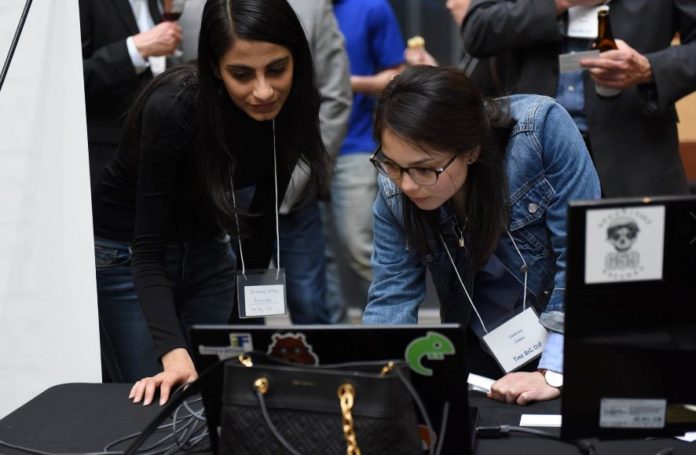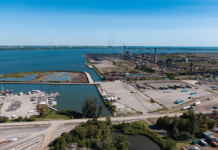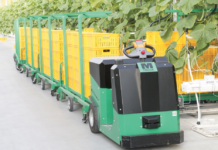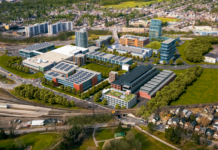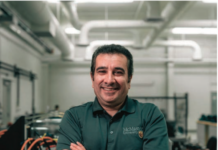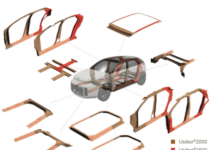Innovation fuels the new economy in Hamilton Ontario
Hamilton has long been known as a city built on hard work. Now it’s also known as a city where innovation goes to work.
“Aspirations are big here, expectations are big here and Hamilton has everything that innovation companies need to launch, scale and grow,” said Carolynn Reid, a business development consultant with the City of Hamilton’s economic development department.
The city was named No. 2 technology city of opportunity by real estate firm CBRE. The commercial real estate firm also ranked Hamilton among the fastest-growing mid-sized cities in terms of tech talent.
“Not only are we seeing people migrate here who are creating a strong start-up community, but we have a talent pipeline out of our post secondary institutions that is fuelling the expansion of existing companies that are thinking big here,” said Reid.
There was also important recognition from Macleans magazine, which named Hamilton among the 25 best cities in Canada for quality of life.
“Hamilton has earned its rightful reputation as a city that attracts the best and brightest, nurtures and celebrates innovation, and grows ventures that are leading the way in the application of technology,” said Glen Norton, director of economic development at the City of Hamilton.
“And it is definitely no longer a secret that Hamilton offers everything talent, entrepreneurs, and newcomers need for a rewarding, exciting career, but also for an enviable, full life in a vibrant and dynamic city.”
McMaster Innovation Park
McMaster Innovation Park bridges fundamental academic research going on at the university to successful commercial ventures, says CEO Ty Shattuck.
“We provide the supports to go from a really outstanding discovery to really outstanding industry impact.”
MIP’s research assets include CanmetMATERIALS, the McMaster Automotive Resource Centre, and the Centre for Biomedical Engineering and Advanced Manufacturing (BEAM), a partnership with the Fraunhofer Institute.
An updated master plan for the park is expected to be finished by the end of the year. Shattuck it envisions a dense community of 4,500 people, a mixture of companies at various stages from various sectors, amenities that spark creativity, and an atmosphere that promotes collisions between researchers, entrepreneurs, venture capitalists and academics.
“That’s a magical environment that’s dynamic and creative with a theme of live, work and create.”
The park’s 500,000 square-foot footprint will grow by 1.6 million square feet, offering restaurants, retail, and a range of services and amenities.
Key to the vision is a hub of century old industrial buildings at the southeast edge of the park that connect to the district’s heritage as the home of Westinghouse. The plan is redevelop them into a hub of advanced manufacturing and life sciences innovation, along with event, restaurant and hotel space, that Shattuck says will become the heart of the park.
MIP is entirely self-sustaining and profitable, is attracting Class A professional services tenants, and is undertaking partnerships with global partners to amplify the power of local research.
The growth of Canada’s economy is driven by mid-sized companies and that’s MIP’s focus, says Shattuck.
“People think of research parks as the land of start-ups, but this is the land of high-growth companies of all sizes.”
Fusion Pharmaceuticals
The power of MIP is readily apparent in a US $105-million venture capital investment in Hamilton drug developer Fusion Pharmaceuticals. It’s among the largest in Canadian biotech history and followed a previous round of investment that raised US$46 million.
The company, founded in 2015, formed out of the research of chemistry and chemical biology professor Dr. John Valliant. Fusion has developed a targeted alpha-therapy treatment for cancerous tumours that are resistant to traditional therapy.
Medical isotopes precisely target cancer cells and “blow up” their DNA so they cannot grow back, explains Valliant, CEO of Fusion.
Clinical trials have begun in Canada and will expand to the U.S. and Australia early in 2020. The company employs 32 people and that is expected to double in a year, says Valliant. The vision is to grow into a global pharmaceutical company.
Fusion has recently moved into its new home at MIP alongside BEAM. From there, it will research and manufacture more cancer treatments. Valliant credits the vision of McMaster to support the commercialization of research, along with provincial and federal funding, for allowing Fusion to launch and thrive.
The history-making investment in Fusion will only raise awareness about is happening in Hamilton, says Valliant.
“Fusion helps shine a spotlight on already very high-potential companies here. I think we show to PhD graduates, post-docs and entrepreneurs that you can create very successful companies in Canada and in Hamilton.”
McMaster Innovation Park
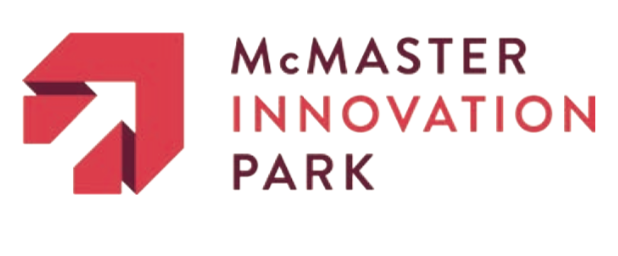
Innovation Factory and the Centre for Integrated Transportation Mobility.Innovation Factory has moved into its new home, The Garage, at the McMaster Innovation Park, alongside McMaster tech accelerator The Forge. The 10,000-square-foot former parking garage-turned-tech-space will allow IF to offer more to clients, says executive director David Carter.
That includes: more meeting space, a Forge maker space, and simulation labs and research space for the Centre for Integrated Transportation and Mobility.
The provincially funded CITM is exploring what connected and autonomous vehicles mean for people and goods movement, city infrastructure, manufacturing and logistics. That includes a Smart City lab at MIP that is partly funded by a $4.3-million injection of cash and in-kind services by Nokia and Amazon over five years.
“There are lots of big brains working on collision avoidance and navigation but there are so many other things to consider, so many other questions to answer. All those problems are opportunities to create companies and jobs,” said Carter. “We can’t underestimate the impact of autonomous vehicles because transportation underpins everything.”
Hamilton is already home to a number of transportation innovation companies, including predictive maintenance provider Preteckt, Nequity, which has developed smart de-icing systems for airplanes, and IRIS R&D, which has developed a dashcam system for city fleet vehicles such as buses and garbage trucks that is integrated with artificial intelligence and deep learning to allow for smart road inspections and maintenance.
IRIS won this year’s entrepreneurial competition Lion’s Lair. Company co-founder Emil Sylvester Ramos says Hamilton’s innovation network is “ground-breaking” and “walks the talk” when it comes to supporting start-ups.
Working with CITM and IF has allowed IRIS to secure a pilot with the City of Hamilton that is expected to start next year.
“That’s a very big win for our company.”

Nix Sensors develops hardware and software for colour sensors and works with partners in various industries to develop custom, value-added solutions that can be marketed.
“By definition, every physical object has a colour and colour is an aspect of quality control in almost all products. That snowballs to infinity in terms of the applications we could be working on,” he said. “We get dozens of calls a day and it’s a different use case each and every time.”
That includes everything from colour-matching fabrics for backpacks used by the military, to assessing the colour of a chicken’s knuckle, to helping cosmetic companies market foundation colours based on the diversity of a city’s population.
The company has doubled in size to about 33 employees in the last year, by serving a cross section of industries, including paint and interior design, cosmetics, health, agriculture and animal science. Nix is focused on increasing its product portfolio and growing international sales into Asia and other new markets.
Nix devices are designed, engineering, assembled and calibrated in Hamilton and Sheridan is seeking three mobile developers to grow his team. He credits Innovation Factory and The Forge for setting the company up for success by providing resources, mentorship and learning.
“The other side that people forget about is the importance of the community atmosphere. As an entrepreneur, you have to do some crazy things, so you need other crazy people around you. In high-risk, high-reward opportunities, you don’t need negative people around. IF and The Forge are full of optimistic people who want you to succeed.”
Hamilton is among the world’s Smart21 Communities of 2020, a list of global cities, towns and regions in 10 countries deemed most ready for the 21st-century.
The New York City-based Intelligent Community Forum made the announcement on Oct 22. Seven communities will move on to being named among the Top7 Intelligent Communities of 2020 in February. From there, a 2020 Intelligent Community of the Year will be unveiled at the ICF Summit in June 2020.
It’s the third time Hamilton has been selected as a Smart21 Community, a designation that shows the city represents the best models of economic, social and cultural development in the digital age.
“I am extremely proud that Hamilton has once again achieved the Smart21 community designation from ICF,” said Mayor Fred Eisenberger. “The collaborative spirit and technological developments happening in our community signal that Hamilton is ready to thrive and prosper in the broadband economy.”
The Smart21 Communities are evaluated on six Intelligent Community indicators: broadband, knowledge workforce, innovation, digital equality, sustainability, and advocacy.
Intelligent Communities “are willing to make the investments in time required to ensure that the next several generations stay ‘home’ and thrive,” said Lou Zacharilla, one of the founders of the ICF. Hamilton is among communities in Canada, the United States, Taiwan, Australia, Brazil and France that were selected. The other Canadian cities to make the list are: Fredericton, Markham, Newmarket and Winnipeg.
The Global Hamilton Council, which includes political, administrative, business and community representation, was formed in January 2015 to provide advice to the City of Hamilton. The council proposed that the City apply to the ICF for the “Intelligent Communities” designation to increase international visibility and attract investment.
Hamilton was able to achieve the Smart21 designation in its first attempt in 2015.


